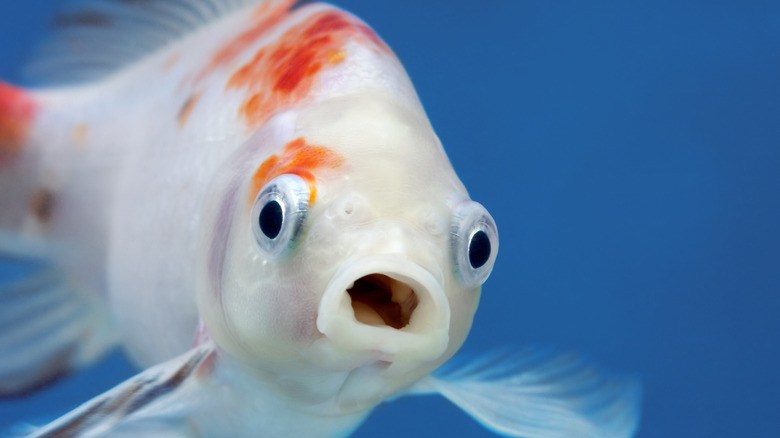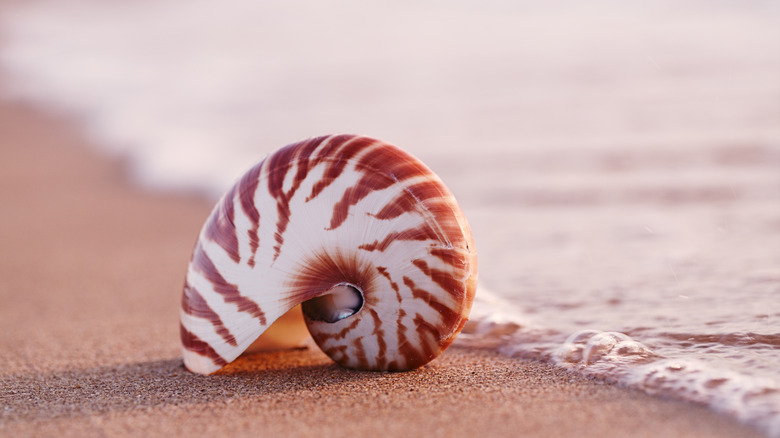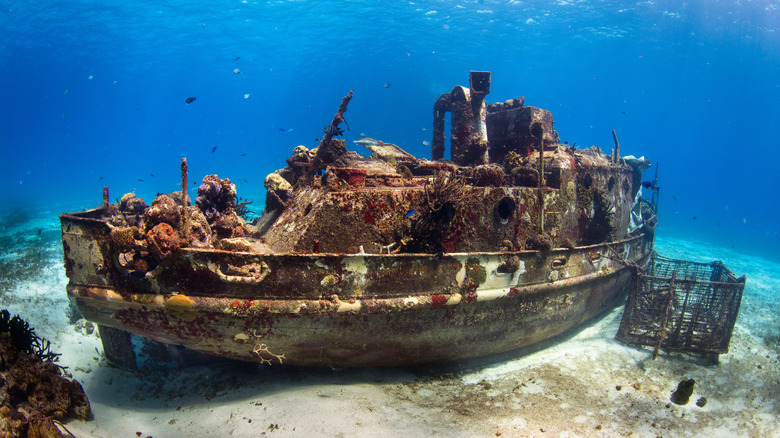Who Invented The Aquarium?
Most people have probably encountered an aquarium at some point in their lives, but how many have stopped to consider why aquariums exist in the first place? The aquarium as we know it was invented in 1832 by Jeanne Villepreux-Power, a French marine biologist (via Britannica). Like many other female scientists, her work has been overlooked by many, but she was a key scientist in the early days of marine biology.
During her time studying marine life, Villepreux-Power realized that she needed a way to study sea creatures up close. To get a better view of these stunning creatures, she invented three types of aquariums. The first was a basic glass aquarium that allowed her to house marine life for better observations and experimentation. The second was a glass apparatus placed in a cage for use in shallow water, and the third was a cage-like aquarium that was capable of lowering its contents to various depths (via Interesting Engineering).
She proved the nautilus made its own shell
Jeanne Villepreux-Power used her newly invented aquarium to study the nautilus. It was believed at the time that the nautilus stole its shell from other sea creatures. This was because some sea creatures, like hermit crabs, find their shells instead of growing them. Villepreux-Powers studied the nautilus from birth to adulthood, discovering that it actually created its own shell, like a snail. In addition, she also discovered that a small octopus-like creature she observed was actually the male nautilus, and not its own creature (via Smithsonian Magazine).
Richard Owen, the famous zoologist who gave dinosaurs their name, championed her work for the Zoological Society of London, making it known to others in her field. He fought against those who questioned her qualifications and referred to her as "the mother of aquariophily." She went on to become a member of more than a dozen scientific societies around Europe, and her work quickly began to spread.
Many of her writings were lost in a shipwreck
If you haven't heard of Jeanne Villepreux-Power before, it's probably because her works were unfortunately lost. Almost all her writings and papers were being moved from Sicily to England in 1843 when they were destroyed in a shipwreck. Villepreux-Power did not publish any works after that, but she was remembered by some because of her correspondence with other researchers (via Smithsonian Magazine).
Jeanne Villepreux-Powers died on January 25, 1871. While she may have been underappreciated during her time, she eventually got some of the recognition she deserved. She went by mostly forgotten until her work was rediscovered in 1997. That same year, a major crater on Venus discovered by the Magellan Probe was named in honor of her scientific discoveries and inventions (via Interesting Engineering). The next time you visit an aquarium, you can thank Villepreux-Power for pioneering the field of marine biology.


